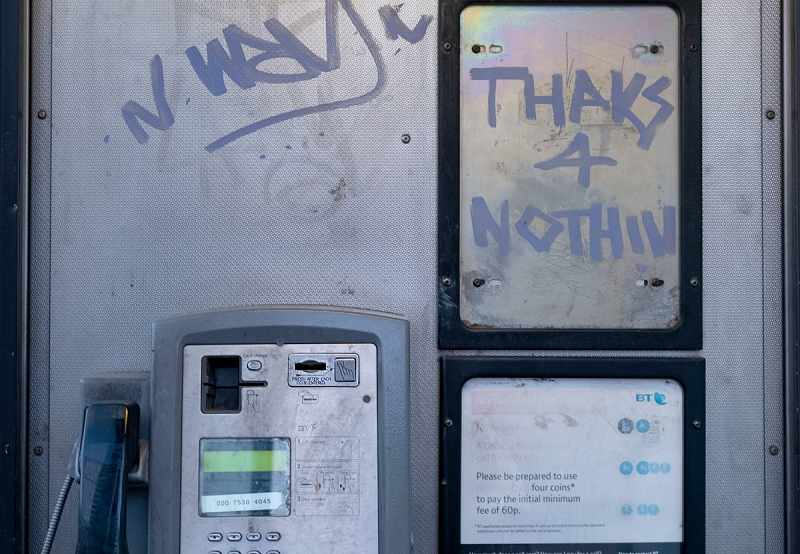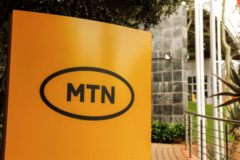As Africa’s new crop of digital-savvy businesses dazzles foreign investors, banks in Nigeria and South Africa want to reinvent themselves and take on their biggest disruptors—fintechs and telcos.
In June 2021, Guaranty Trust Bank, one of Nigeria’s leading financial institutions, transitioned into a holding company from its standalone commercial banking structure. Segun Agbaje, CEO and Managing Director of Guaranty Trust Bank (GTB) said the switch was necessary because Nigeria’s central bank rules required commercial banking business to be separated from other financial services businesses. The idea was that alongside its commercial banking business, Guaranty Trust Holding Company (GTCO) would enter the non-banking financial services space.
Non-banking financial services is corporate formalese for fintech. Mr Agbaje’s bank did not want to be left out of a fintech boom that had only recently seen Flutterwave valued at more than $1 billion after only 4 years of operating. Others, like Kuda bank, a digital-only challenger bank, had raised $50 million at a valuation of $500 million. And in 2020, Paystack, another payments company, had been snapped up by American payments giant Stripe for a tidy $200 million—a windfall for early investors in the company.
The bonanza was too appealing to pass up—not with five-year-old Kuda becoming the 7th most valuable bank in Nigeria; more valuable than all tier 2 banks combined.
Banks vs fintechs
The threat was also clear. When Flutterwave tripled its $1 billion valuation following a $250 million fundraise announced in March this year, it became worth more than Guaranty Trust Bank and Zenith Bank, two of the five largest banks in Nigeria.
Of course, valuations tell a poor story of a business’ actual value in the present. But they are not meaningless and Agbaje and several of his colleagues in Nigeria’s banking brass took notice.
On the 2nd of June this year, GTCO announced it had received final approval for its payments unit HabariPay Limited from the Central Bank of Nigeria. “Payments are central to the development of financial services globally and represent a key growth area for the group,” Agbaje said in the statement announcing the launch of HabariPay. HabariPay’s flagship product, Squad, combines a payment gateway, and eCommerce platform with a Point-of-Sale business.
Like Guaranty Trust Bank, Access Bank, another one of the FUGAZ (First Bank, United Bank for Africa, Access Bank and Zenith Bank) list of top Nigerian banks adopted the holding company structure in May 2022. On the 21st of September, it announced it had received final approval from the Central Bank of Nigeria (CBN) for its wholly-owned payment subsidiary, Hydrogen Payment Services Company Limited.
“The establishment of Hydrogen is a natural step in our aspiration to create a globally connected community and ecosystem,” said Group CEO, Herbert Wigwe in Access Holdings’ statement announcing Hydrogen.
The big banks are not the only guys piling into the fintech space in Africa’s largest country. Smaller banks like Sterling Bank and Wema bank are also joining the fray.
Wema, Nigeria’s oldest indigenous bank has ALAT, a digital-only bank product launched in 2017. And Sterling bank announced this week that it is on track to reform as a holding company and has already secured approval for a non-interest banking business from the Central Bank of Nigeria.
Sterling already has Specta, a digital lending platform available to customers of any bank. Sterling bank’s path to a holding company is hardly a secret.
In 2020, Sterling’s CEO, Abubakar Suleiman told TechCabal that unlike GTCO’s Segun Agbaje and Access Holdings’ Herbert Wigwe, he was uninterested in the payments business. “What is driving our fintech engagement is really the sectors of focus,” Suleiman told TechCabal. “So rather than fintech within finance which is sometimes in view overrated. It is tech within the other sectors that would really create value.” The bank’s digital services portfolio includes Social Lender (an online lender), Doubble and I-Invest (investment apps) and Alt-Mall, an e-commerce platform that allows users to buy items and pay later. If Suleiman is sticking to his 2020 lines, then a “Sterling Holding Company” may see his bank double down on digital lending and investment products. “Our end-to-end plan is that we want to significantly leverage technology to become the major financial adviser and lender in specific sectors,” Suleiman said.
Flutterwave has taken notice of the new players coming for its lunch. The company recently obtained a switching and processing license that will enable it to process payments without intermediaries. Smaller fintechs who do not have the financial wherewithal to dig in may look for opportunities to serve niches, consolidate by merging or acquiring other financial institutions, or partner with the telcos who are now attacking the fintech market with their payment service licenses.
In Nigeria, and throughout much of Africa, banks hold a natural advantage as pillars around and through which financial services flow. Their fintech plays also enjoy the privilege of being born with silver spoons. But corporate startups are tricky and being entrenched also has its downsides.
Because they have different priorities and a diverse client list and numerous stakeholders, banks tend to move slowly. Banks do not rely on the retail consumer business for most of their profits. Retail channels are simply a deposit acquisitions play, whereas for fintechs, penetrating the retail market is a top priority despite its poor margins. Whether the banks are willing to loosen the apron strings and let their “corporate startups” explore remains to be seen. With all the consumer complaints (unreliable bank apps, etc.) that banks have to deal with on their existing digital platforms, it is almost certain that they will struggle.
Banks vs telcos
In South Africa, the story follows a similar path—only this time it is banks reacting to how mobile network carriers are leveraging their position as internet gatekeepers to serve their customers with financial products.
According to the African Digital Transformation Report 2022, published by Backbase, a Dutch banking technology company, African banks see the entry of telecommunication companies into banking services as a threat to their market share.
As far back as 2015, First National Bank (FNB), a leading bank in South Africa launched FNB Connect, a Mobile Virtual Network Operator (MVNO) service that uses Cell C’s network to offer prepaid data, voice and SMS services.
Three years later, Standard Bank, Africa’s largest lender by assets, rolled out Standard Bank Mobile, an MNVO product but exclusively for its banking customers. The company is also taking on the mobile money market with Unayo, a mobile payment service. Wally Fisher, head of the service, told Reuters that Unayo wants to corner “a meaningful share of the mobile money market in the near term and believes it can capture at least 1% of around $90 billion in remittance and donor aid payments made every year as revenue.” Unayo, which plans to be active in every market where Standard Bank operates, is building out an agent network. By 2021, it had already signed on more than 6,500 agents in Malawi.
Nedbank, another leading lender in South Africa, was an early adopter of mobile money. In 2010, only three years after Safaricom’s M-PESA launched in Kenya, Nedbank teamed up with Vodacom to release a similar offering also named M-PESA in South Africa. Unlike its Kenyan namesake, M-PESA failed to grow but Nedbank is not giving up. The bank is now looking toward small and informal traders for growth, Vanesha Palani, a Nedbank executive told Reuters last year.
While South African banks battle telcos’ dominance in mobile money services, they are resetting their sights lower to target voice and data—the core business of telcos.
This week South Africa’s Capitec bank launched an MVNO play, Capitec Connect, promising “data that never expires”. The service, like FNB Connect, will rely on Cell-C’s network. Banks are an unlikely source of competition with telcos, but with the importance of digitally delivered financial services becoming clearer, banks see the entry of mobile companies into banking services as a threat to their market share.
At any rate, the competition is weird, to say the least, since it relies on Cell-C—a telco, that sometimes piggybacks on MTN’s network for out-of-coverage areas.
Capitec Connect will be a pure prepaid service with no contracts and device sales attached, in contrast to FNB Connect which offers a prepaid option, as well as contract and device bundles, including data-only packages. Capitec is South Africa’s biggest bank by customers—with offerings that cater to mostly low-income earners.
“South Africans have been complaining about the cost of mobile data. It’s expensive and complicated. Bundle pricing, off-peak and peak rates, and the fact that your data expired are all things that make no sense. We’re changing this by giving our clients access to a mobile solution that is simpler to understand, much more affordable and can be recharged easily on our digital channels,” said Gerrie Fourie, CEO of Capitec.
But Fourie disagrees with analysts who say Capitec Connect is a play to disrupt the mobile market. “We have eight million clients that are buying prepaid and we believe we can give better value to them… It’s all about the client experience for us, it’s not about disrupting anyone,” he said in a local TV interview last week.
Regardless of how it is sold, the reality is that banks are yet to figure out how to counter the threat that digital-first businesses like fintechs and telecommunications pose in today’s mobile world. But fighting on telco turf may be an admission of helplessness. MVNOs do not really own the networks or services they sell. They simply rent bulk spectrum space from mobile carriers and resell it to their customers. And fintechs are better designed to find what works and grow fast.
As the banking sector in Africa comes under pressure to both reinvent itself and remain relevant, the battle between telcos, banks and digital-only challengers battle to meet the continent’s changing consumer demands will only become stronger. At the same time, a frontal assault by central bank digital currencies also threatens bank dominance of consumer financial services.
For now, banks are safe, but they are also rapidly running out of wriggle room.





















